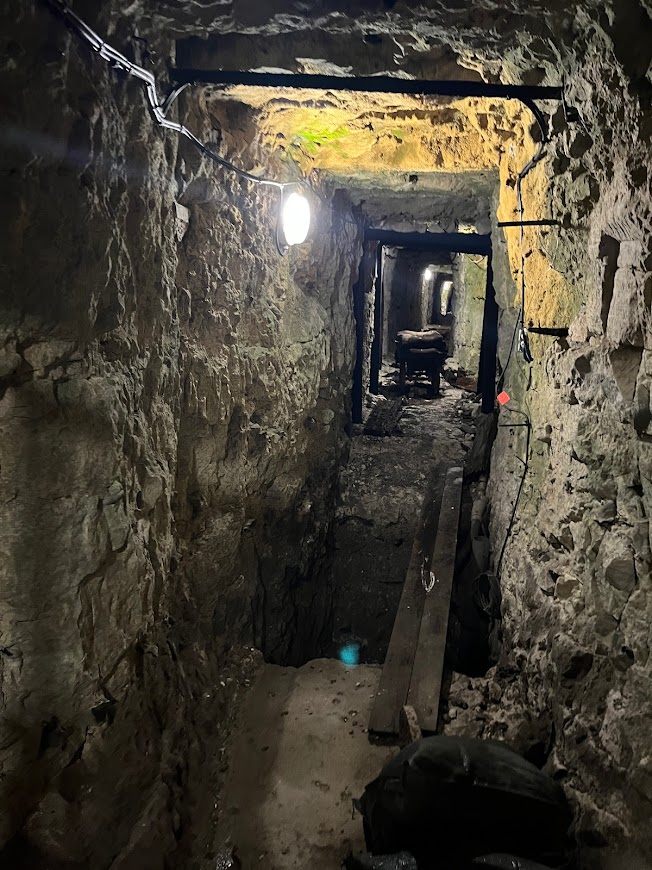The Canadian monument at Vimy is a very impressive sculpture but also very interesting is how the front line trenches and battlefield has been preserved. A hundred years later the cratered and chewed up ground is still there, protected by a pine forest, probably the best way to preserve the terrain from erosion, couldn't keep it as bare mud we see in WW1 pictures, but the trenches have also been preserved. Once again a wall made of sand bags would be long gone by now, the sand bags were replaced by concrete-filled bags and stacked while still wet. A hundred years later, its still very convincing. The tour also goes through some pf the tunnels that were dug in the chalk bedrock. Concrete supports keep the roof in place, but the guide explained that any concrete was added later so it is quite easy to imagine them as they were. A rather sobering place to visit.








Man I'm glad I missed that scene.
ReplyDeleteMy grandpa's voice was notably scratchy and high pitched. I never thought much about the fact. He'd been in the US army during WWI (it was that or prison, according to a judge), but he told me he never left the States. It was decades after his death that I learned he'd been gassed in France.
We ended up driving more or less along where the front lines were, stopping at various monuments. I always had the idea of men storming a ridge, There are no ridges, it's flat , and the enemy trench is 100 yards or more away. Except at Vimy the trenches were mre feet away. So wasteful. So pointless.
ReplyDelete